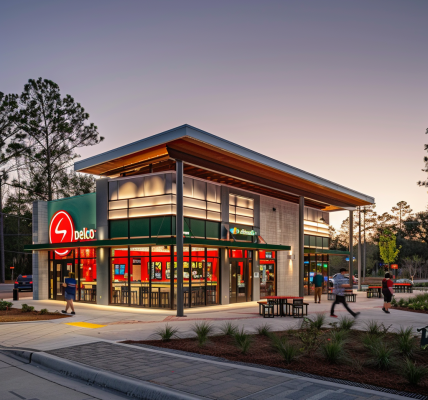A recent ruling by a federal court has put a significant roadblock in the proposed merger between Tapestry, the owner of Coach, and Capri Holdings, the parent company of Michael Kors. The decision, delivered by Judge Jennifer Rochon in New York, came after a brief trial held last month, which has raised eyebrows in the fashion industry.
The judge granted a preliminary injunction requested by the Federal Trade Commission (FTC), effectively blocking the $8.5 billion merger that would have combined two of America’s largest luxury fashion houses. This merger would have brought together an impressive portfolio of brands, including Tapestry’s Coach, Kate Spade, and Stuart Weitzman alongside Capri’s Versace, Jimmy Choo, and Michael Kors.
Following the ruling, Tapestry’s stock saw a notable increase of 10%, while Capri’s shares took a significant hit, plummeting by approximately 50%. This stark contrast in stock performance highlights the market’s immediate reaction to the court’s decision.
In a statement responding to the ruling, Tapestry expressed disappointment with the court’s decision, asserting that it plans to appeal the order. The company argued that the merger would be beneficial for competition and consumers alike, stating, “Today’s decision granting the FTC’s request for a preliminary injunction is disappointing and, we believe, incorrect on the law and the facts.” Tapestry emphasized that both companies operate in a highly competitive and dynamic industry, characterized by constant expansion and a mix of established and new entrants.
The merger agreement included provisions that would require Tapestry to reimburse Capri for expenses incurred if the deal fails to secure regulatory approval. According to securities filings, should either company withdraw from the agreement due to a lack of regulatory clearance or a permanent injunction, Tapestry would owe Capri between $30 million and $50 million. Conversely, Capri has agreed to a breakup fee of $240 million if it decides to terminate the merger.
While the specifics of Judge Rochon’s reasoning remain undisclosed, as a detailed opinion was filed under seal and is not accessible to the public, the FTC has voiced concerns that the merger could harm consumers by raising prices and reducing employee benefits. These apprehensions reflect a growing scrutiny over mergers and acquisitions in the retail sector, especially within the luxury market where competition is fierce.
The proposed merger was initially announced over a year ago, and since then, it has been a subject of debate among industry experts and regulators. The FTC’s involvement signals a cautious approach to maintaining competitive practices in the luxury goods market, which has seen significant consolidation in recent years. Both Tapestry and Capri have long been recognized as formidable competitors in the fashion industry, and their potential union raised questions about market monopolization.
As the appeal process unfolds, the implications of this ruling could resonate throughout the luxury retail sector. Analysts will be closely monitoring the situation to see how it affects both companies’ strategies moving forward and the broader market dynamics within the luxury fashion industry.
With the ongoing developments, stakeholders in the fashion industry, including investors, employees, and consumers, are left to speculate on the future of Tapestry and Capri. The outcome of this legal battle could set a precedent for future mergers and acquisitions in the retail space, particularly as regulatory bodies continue to scrutinize large-scale deals.
As the luxury market evolves, the ability of companies to adapt to regulatory challenges will be crucial in shaping the competitive landscape. The focus on consumer protection and fair competition is likely to remain at the forefront of discussions surrounding mergers, especially in an industry that is as influential as luxury fashion.





